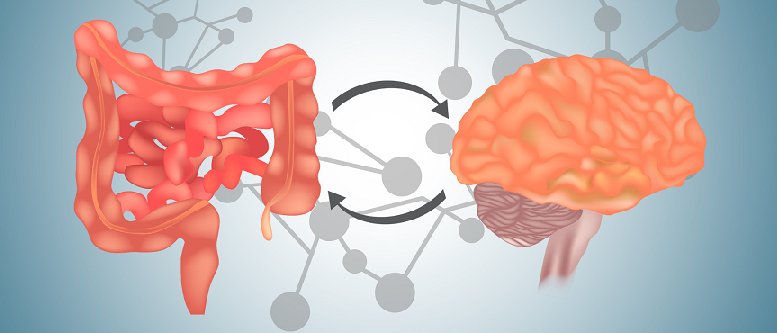
Have you ever noticed feeling more anxious or irritable after eating a big, greasy meal? Or maybe you’ve experienced a boost in your mood after consuming certain foods, like dark chocolate or fermented foods? While it may seem surprising, these experiences are linked to the health of our gut. Recent research has shown that the state of our gut microbiome – the trillions of microorganisms that live in our digestive tract – can have a significant impact on our mood and emotions.
The Importance of Gut Health
Maintaining a healthy gut is crucial for overall well-being. The gut, also known as the gastrointestinal tract, is responsible for digesting food, absorbing nutrients, and eliminating waste. When the gut is functioning properly, it supports a strong immune system, helps regulate hormones and neurotransmitters, and may even reduce the risk of chronic diseases.
One of the key factors in gut health is the microbiome – the trillions of microorganisms that live in the digestive tract. The microbiome plays a critical role in many aspects of health, including digestion, metabolism, and mental health. Recent research has linked an imbalance in the gut microbiome to a range of health problems, from digestive disorders to autoimmune diseases and mental health issues.
Unfortunately, many factors in modern life can disrupt gut health. A poor diet high in processed foods, chronic stress, and certain medications can all negatively impact the gut microbiome. Over time, this can lead to inflammation, immune dysfunction, and a host of health problems.
Fortunately, there are steps that individuals can take to improve gut health. Eating a balanced diet that is rich in fiber and fermented foods, reducing stress, getting enough sleep, and avoiding unnecessary antibiotics can all help promote a healthy gut microbiome. By prioritizing gut health, individuals can support their overall health and well-being.

The Gut-Brain Axis
The gut-brain axis is a complex communication network that connects the digestive system, including the gut microbiome, with the central nervous system, which includes the brain and spinal cord. The gut-brain axis allows for the two systems to communicate with each other bidirectionally, meaning that messages can be sent from the gut to the brain and vice versa.
One of the key players in the gut-brain axis is the microbiome, which is made up of trillions of microorganisms that live in the gut. These microorganisms play a critical role in maintaining gut health and also communicate with the brain through a variety of pathways. One such pathway is the vagus nerve, a long nerve that connects the brainstem with many organs in the body, including the gut. The vagus nerve sends signals from the gut to the brain, which can impact a wide range of bodily functions, including mood, appetite, and digestion.
Another important pathway in the gut-brain axis is the immune system. The gut is home to a significant portion of the body’s immune cells, which play a critical role in maintaining gut health and defending against infection. However, immune cells in the gut can also communicate with the brain through chemical messengers called cytokines. Cytokines are produced by immune cells in response to inflammation and can impact mood and behavior.
In addition to the microbiome and immune system, the gut-brain axis also involves other signaling pathways, including the enteric nervous system, a complex network of neurons that lines the gut. The enteric nervous system can function independently of the central nervous system and plays a role in many gut functions, including motility and secretion.
The connection between the gut and brain is so strong that many researchers and medical professionals refer to the gut as the “second brain.” This is because the gut contains a significant amount of neurons and neurotransmitters, which are chemicals that transmit signals between nerve cells. Many of the same neurotransmitters that are found in the brain, such as serotonin, are also present in the gut and are produced by the microbiome.
Given the complex and bidirectional nature of the gut-brain axis, it is not surprising that disruptions to gut health can impact mental health and behavior. For example, research has linked imbalances in the gut microbiome to mood disorders such as anxiety and depression, as well as to other conditions such as irritable bowel syndrome and autoimmune diseases.

The Link between Gut Health and Mood/Emotions
Research has shown that there is a strong link between gut health and mood/emotions. The gut-brain axis, which connects the digestive system, including the gut microbiome, with the central nervous system, plays a critical role in this connection.
One way in which gut health can impact mood and emotions is through the production and regulation of neurotransmitters, which are chemical messengers that transmit signals between nerve cells. Many of the same neurotransmitters that are found in the brain, such as serotonin and dopamine, are also present in the gut and are produced by the microbiome. Imbalances in these neurotransmitters have been linked to a range of mood disorders, including anxiety and depression.
In addition to neurotransmitter production, inflammation in the gut has also been linked to mood disorders. Chronic inflammation can disrupt the balance of cytokines, which are chemical messengers produced by the immune system in response to infection or injury. Imbalances in cytokines have been linked to a range of mood disorders, including depression.
The gut microbiome also plays a role in the link between gut health and mood. An imbalance in the gut microbiome, known as dysbiosis, has been linked to a range of health problems, including digestive disorders and mood disorders. Recent research has shown that certain strains of bacteria in the gut may have mood-enhancing effects, while others may contribute to depression and anxiety.
Factors that negatively impact gut health, such as a poor diet high in processed foods, chronic stress, and certain medications, may also have a negative impact on mood and emotions. For example, stress has been shown to disrupt the balance of bacteria in the gut and increase inflammation, which can contribute to mood disorders.
Improving gut health through dietary and lifestyle changes may therefore have a positive impact on mood and emotions. Consuming a balanced diet that is high in fiber and fermented foods, reducing stress through mindfulness or other stress-reducing techniques, and getting enough sleep have all been shown to improve gut health and may have positive effects on mood and emotions.
Factors that Affect Gut Health
Several factors can contribute to an imbalance in the gut microbiome, known as dysbiosis, which has been linked to a range of health problems, including digestive disorders, autoimmune diseases, and mood disorders. By making dietary and lifestyle changes that promote a healthy gut microbiome, individuals can support overall health and well-being.
- Diet: A diet that is high in processed foods, sugar, and unhealthy fats and low in fiber can disrupt the balance of bacteria in the gut and promote inflammation, which can lead to a range of health problems.
- Chronic stress: Stress can disrupt the balance of bacteria in the gut and increase inflammation, which can contribute to digestive disorders and other health problems.
- Medications: Certain medications, such as antibiotics, can disrupt the balance of bacteria in the gut, leading to an overgrowth of harmful bacteria and a decrease in beneficial bacteria.
- Infections: Infections, such as those caused by viruses, bacteria, or parasites, can disrupt the balance of bacteria in the gut and lead to inflammation and other health problems.
- Environmental toxins: Exposure to environmental toxins, such as pesticides, can disrupt the balance of bacteria in the gut and promote inflammation, which can lead to a range of health problems.
- Lack of sleep: Lack of sleep can disrupt the balance of bacteria in the gut and lead to inflammation, which can contribute to digestive disorders and other health problems.
- Sedentary lifestyle: Lack of physical activity can disrupt the balance of bacteria in the gut and promote inflammation, which can lead to a range of health problems.

Ways to Improve Gut Health
There are several ways to improve gut health. By incorporating these strategies into daily life, individuals can improve gut health and support overall health and well-being.
- Diet: Consuming a diet that is high in fiber, whole foods, and fermented foods can promote the growth of beneficial bacteria in the gut. Fermented foods, such as kefir, kimchi, and sauerkraut, contain live bacteria that can help improve gut health.
- Probiotics: Probiotics are live bacteria that can be consumed as supplements or in certain foods, such as yogurt. Consuming probiotics can help promote the growth of beneficial bacteria in the gut and improve gut health.
- Prebiotics: Prebiotics are types of fiber that are not digestible by the body but are consumed by beneficial bacteria in the gut. Foods that are high in prebiotics include bananas, onions, garlic, and asparagus.
- Stress reduction: Chronic stress can disrupt the balance of bacteria in the gut and promote inflammation, which can lead to a range of health problems. Techniques such as meditation, yoga, and deep breathing can help reduce stress and improve gut health.
- Getting enough sleep: Lack of sleep can disrupt the balance of bacteria in the gut and lead to inflammation, which can contribute to digestive disorders and other health problems. Getting enough sleep is essential for maintaining gut health.
- Avoiding unnecessary antibiotics: Antibiotics can disrupt the balance of bacteria in the gut and lead to an overgrowth of harmful bacteria. Avoiding unnecessary antibiotics and taking them only when necessary can help improve gut health.
- Exercise: Regular exercise can improve gut health by promoting the growth of beneficial bacteria in the gut and reducing inflammation.
- Avoiding environmental toxins: Exposure to environmental toxins, such as pesticides, can disrupt the balance of bacteria in the gut and promote inflammation. Avoiding exposure to these toxins can help improve gut health.
